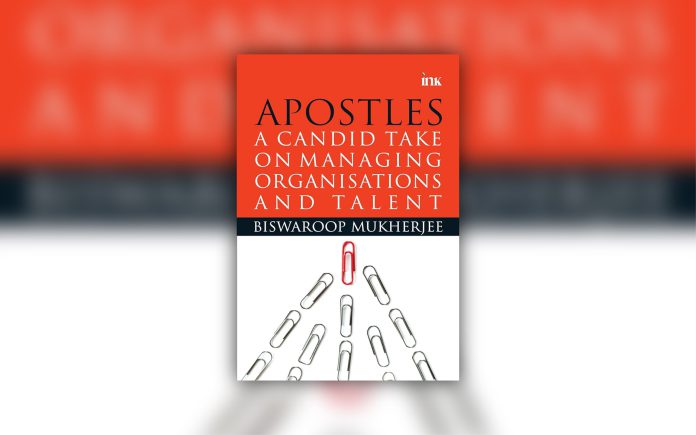In the past few years, organisations have seen a tug-of-war for talent has intensified, leading to a landscape in which leaders must be deeply mindful of the manner in which they leverage their human capital. In this milieu, Biswaroop Mukherjee provides a timely and comprehensive guide for HR leaders looking to navigate the intricate dynamics of managing and empowering their workforce in his latest book, “Apostles: A Candid Take on Managing Organizations and Talent”.
Mukherjee draws upon his extensive experience in human resources and organizational development to deliver a thought-provoking and practical resource. From the outset, he emphasises the pivotal role of authentic leadership, urging HR professionals to lead by example and cultivate an environment of trust, transparency, and ethical conduct.
The book delves into the essence of employee experience, recognizing its profound impact on engagement, productivity, and retention. Mukherjee underscores the importance of fostering a positive workplace culture that celebrates diversity, promotes work-life balance, and creates opportunities for personal and professional growth.
With disruptions and uncertainties now the norm more than the exception, the author offers invaluable insights into dealing with adversity. He provides strategies for building organisational resilience, adapting to change, and empowering employees to embrace challenges as opportunities for innovation and growth.
One of the book’s standout features is its exploration of fostering innovation within organisations. Mukherjee emphasises the significance of nurturing a culture of curiosity, encouraging creative thinking, and embracing calculated risks. To offer a framework for doing so, he offers practical techniques for ideation, collaboration, and experimentation, enabling organisations to stay ahead of the curve.
Performance management is another critical aspect addressed in the pages of the book. He advocates a holistic approach that combines goal setting, continuous feedback, and development opportunities that challenges traditional annual review systems. Instead, he proposes more dynamic and collaborative methods that align individual aspirations with organisational objectives.
Without a doubt, Mukherjee’s mastery shines through in his guidance on effective decision-making processes. He emphasises the importance of data-driven insights, stakeholder involvement, and due consideration ethical implications. He equips readers with tools and guidelines for navigating complex decisions and mitigating biases that can impede sound judgment.
Talent development strategies take centre stage in the latter chapters. He underscores the importance of identifying, nurturing, and retaining top talent as he provides actionable recommendations for building robust succession planning, implementing mentorship programs, and creating learning paths that foster continuous growth and development.
Throughout the book, Mukherjee draws upon real-world examples and case studies, bringing his insights to life and demonstrating their practical application across diverse industries and organisational contexts.
One of the book’s greatest strengths lies in its balanced approach, acknowledging the complexities and nuances of managing talent while offering pragmatic solutions. Mukherjee recognises that every organization is unique, and encourages readers to tailor the strategies offered to their specific contexts and needs.
On the whole, “Apostles: A Candid Take on Managing Organizations and Talent” is a must-read for HR professionals, executives, and anyone involved in organisational development and talent management. Biswaroop’s insightful guidance and practical strategies provide a solid foundation for building high-performing, innovative, and purpose-driven organizations capable of thriving in an ever-changing business environment.


